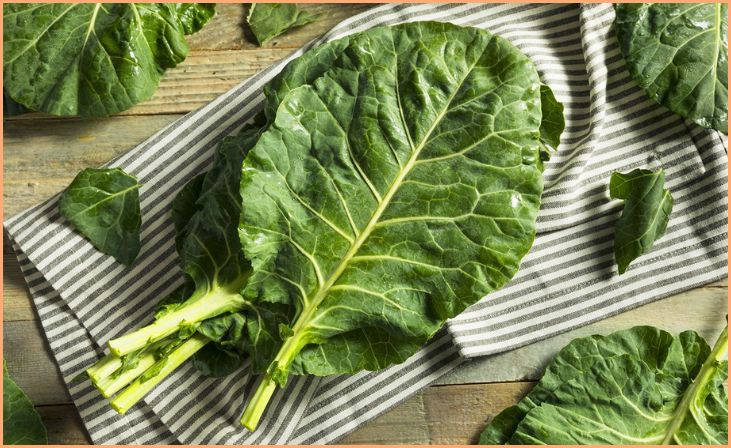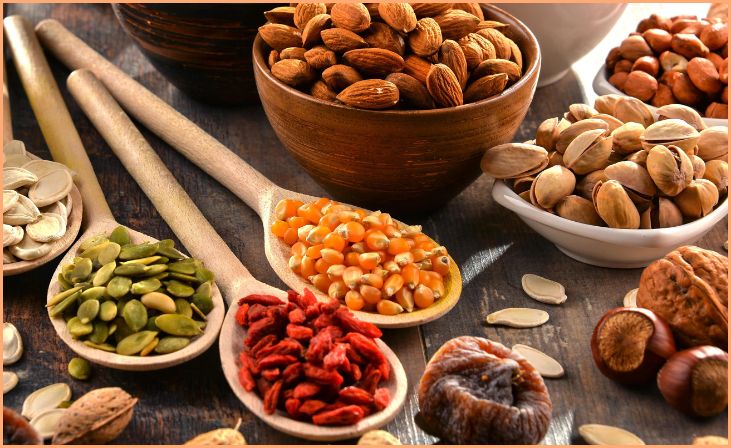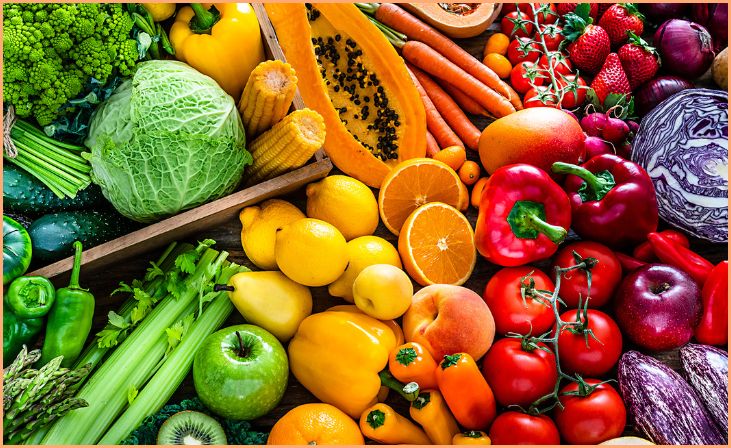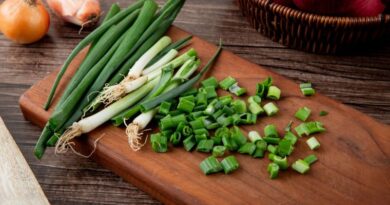As we age, our bodies undergo various changes that can impact our overall health and well-being. One of the most important factors in maintaining a healthy lifestyle is a balanced diet. Proper nutrition plays a pivotal role in supporting vital bodily functions and mitigating age-related health concerns. Eating the right foods becomes even more crucial for individuals over the age of 50, as their nutritional needs may differ from those of younger adults. In this blog post, we will explore eight essential foods that those over 50 should incorporate into their diet for optimal health.
These foods are packed with vital nutrients that can help combat age-related issues and promote longevity. So, let’s dive in and discover what you should be eating to thrive in your golden years.
Essential Foods Choices for Those Over 50
Maintaining a balanced and nutritious diet becomes increasingly important. The foods we consume play a crucial role in supporting our health and well-being. If you’re over 50, there are certain foods that should have a prominent place on your plate. In this article, we’ll delve into the top 8 foods that everyone over 50 should consider incorporating into their diet for optimal health and vitality.
1. Leafy Greens

Leafy greens, exemplified by spinach and kale, stand as nutritional powerhouses with a myriad of health benefits. Brimming with vitamins, minerals, and fiber, these greens play a pivotal role in promoting robust bone health and facilitating digestion. Beyond their nutritional density, they serve as a valuable source of antioxidants, offering protection to cells against age-related damage. The abundance of antioxidants in spinach and kale contributes to overall well-being, providing a natural defense mechanism against oxidative stress.
Whether blended into a smoothie, tossed in salads, or sautéed as a side dish, incorporating these leafy greens into your diet is a flavorful and versatile way to fortify your body with essential nutrients for sustained health. Embrace the vibrancy and goodness of spinach and kale, and let these greens become an integral part of your journey towards a nourished and resilient well-being.
Quick Link: Nourish Your Digestive Health: 7 Fiber-Rich Foods for Regularity
2. Berries
Berries, such as the vibrant blueberries and strawberries, aren’t just a burst of flavor; they’re nutritional powerhouses enriched with antioxidants. The diverse array of colorful berries houses compounds that actively combat oxidative stress, a factor linked to both aging and various health conditions. By including these berries in your diet, you introduce a natural defense mechanism against cellular damage, promoting overall well-being.
The antioxidants found in blueberries, strawberries, and their counterparts play a crucial role in maintaining cognitive function, offering a delicious and proactive approach to supporting brain health.
Whether enjoyed as a refreshing snack, blended into smoothies, or sprinkled over yogurt, the versatility of berries makes it easy to incorporate these tiny treasures into your daily routine for a tasty boost that nurtures both your taste buds and your cellular health.
3. Fatty Fish
Delve into the nutritional excellence of fatty fish, particularly salmon, and sardines, where omega-3 fatty acids take center stage. Renowned for their heart-protective benefits, these omega-3s actively contribute to reducing inflammation, lowering blood pressure, and fostering overall cardiovascular health. The inclusion of fatty fish in your diet becomes a flavorful strategy to support a resilient heart and enhance well-being. Beyond cardiovascular benefits, omega-3 fatty acids play a vital role in maintaining cognitive function, offering a multifaceted approach to brain health.
Whether grilled, baked, or incorporated into salads, the rich and savory profile of fatty fish makes it a delectable choice for those seeking a holistic and delicious means of fortifying both heart and mind. Embrace the omega-3 bounty of salmon and sardines to elevate not only your culinary experiences but also your overall health.
4. Nuts and Seeds

Unlock the nutritional prowess of nuts and seeds, as they emerge as excellent sources of healthy fats, fiber, and essential nutrients. Walnuts, almonds, and flaxseeds take the spotlight by offering a rich supply of omega-3 fatty acids, crucial for fostering brain health. Integrating these into your diet becomes a holistic strategy, not only supporting heart health but also providing sustained energy and a satisfying sense of fullness. The dynamic combination of healthy fats and fiber in nuts and seeds creates a nutrient-packed solution for those seeking a delicious and nourishing addition to their meals.
Whether enjoyed as a snack, sprinkled on yogurt, or incorporated into salads, the versatility of nuts and seeds makes it easy to infuse your diet with a burst of flavor and a wealth of health benefits. Embrace the wholesome goodness of walnuts, almonds, and flaxseeds to fuel your body and mind with the essential elements needed for a vibrant and balanced lifestyle.
5. Whole Grains
Embark on a journey of well-rounded nutrition by incorporating whole grains like quinoa, brown rice, and whole wheat into your diet. Beyond their wholesome flavor, these grains offer a sustained source of energy, creating a foundation for vitality throughout the day. Rich in fiber, they play a pivotal role in supporting digestive health by facilitating smooth digestion and preventing abrupt fluctuations in blood sugar levels. The inherent nutritional density of whole grains extends beyond their energy-boosting qualities, contributing to a prolonged feeling of fullness and satisfaction.
Whether as a base for hearty salads, a side dish, or a component of grain bowls, the versatility of quinoa, brown rice, and whole wheat makes it easy to infuse your meals with both taste and essential nutrients. Embrace the nourishing benefits of whole grains to cultivate a balanced and energetic lifestyle while fortifying your digestive well-being.
6. Lean Protein
Prioritize the preservation of muscle mass, especially as it naturally diminishes with age, by embracing the importance of lean protein in your diet. Integrate diverse sources such as poultry, lean meats, tofu, and legumes to ensure a robust protein intake. Beyond its role in muscle maintenance, protein plays a crucial part in facilitating tissue repair, contributing to overall bodily resilience.
The inclusion of these protein sources in your meals becomes a proactive approach to sustaining strength and energy levels. Whether grilled chicken, plant-based tofu dishes, or legume-packed salads, the versatility of these protein options allows you to craft meals that are both nutritious and delicious.
Recognize the role of lean protein not just in supporting muscle health but also in fortifying your body for an energetic and vibrant lifestyle. Embrace the diverse array of protein-rich foods to ensure that your dietary choices contribute to the maintenance of strength and vitality, promoting a healthier and more active aging process.
7. Dairy or Dairy Alternatives
Prioritize bone health by incorporating dairy products or fortified dairy alternatives into your diet, recognizing their pivotal role in fortifying your skeletal structure. These sources supply essential nutrients like calcium and vitamin D, indispensable for maintaining robust and healthy bones. Opting for low-fat or fortified options becomes a prudent choice, ensuring that you reap the bone-strengthening benefits without introducing excess saturated fat into your diet.
The calcium in dairy or fortified alternatives is instrumental in supporting bone density and overall skeletal integrity. Simultaneously, vitamin D aids in the absorption of calcium, forming a dynamic duo that is indispensable for optimal bone health.
Whether it’s a serving of yogurt, a glass of fortified almond milk, or a slice of cheese on whole-grain bread, integrating these options into your meals provides a delectable and nutritious way to invest in the longevity and resilience of your skeletal framework. Embrace the importance of dairy or fortified alternatives for bone health, and make informed choices that contribute to a foundation of strength and vitality as you age.
Also Read: The World’s Unhealthiest Canned Foods: What to Watch Out For
8. Colorful Vegetables

Embark on a journey of vibrant health by incorporating a spectrum of colorful vegetables, including carrots, peppers, and sweet potatoes, into your daily diet. Bursting with a treasure trove of vitamins, minerals, and fiber, these vegetables serve as nutritional powerhouses that contribute to overall well-being. The diverse array of nutrients found in colorful vegetables actively promotes health, offering a holistic approach to nourishment.
By including a variety of these vegetables in your meals, you not only infuse your diet with antioxidants but also support digestive health and ensure a rich supply of vital nutrients essential for various bodily functions.
Whether roasted, stir-fried, or enjoyed raw in salads, the versatility of colorful vegetables allows for delicious and creative culinary exploration while prioritizing your health. Embrace the vibrant palette of nature’s bounty to create meals that not only delight your taste buds but also provide a colorful array of nutrients for a thriving and resilient well-being.
Final Thoughts
In conclusion, maintaining a nutritious diet is essential for individuals over the age of 50 to support their overall health and well-being. By incorporating these eight essential foods into their diet, they can ensure they are receiving the necessary nutrients to combat age-related issues and promote longevity. Remember to consult with a healthcare professional or a registered dietitian to personalize your diet plan based on your specific needs and medical conditions. Embrace a balanced diet filled with these nutrient-dense foods, and enjoy a healthy and vibrant life well into your golden years.
FAQs
These foods are rich in nutrients that address specific health concerns associated with aging, such as bone density, heart health, and cognitive function.
Absolutely. The key is balance. While these foods offer targeted benefits, incorporating a diverse range of fruits, vegetables, lean proteins, and whole grains is essential for overall nutritional well-being.
Individual dietary needs vary, but it’s generally advisable to limit processed foods, excessive salt, and added sugars. Consultation with a healthcare professional or nutritionist can provide personalized guidance.
Start by gradually incorporating these foods into your meals. Experiment with recipes that feature them, and consider consulting with a nutritionist to create a personalized and sustainable dietary plan.







